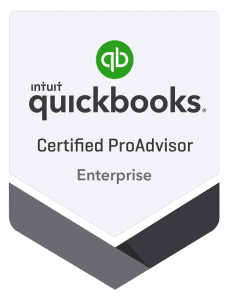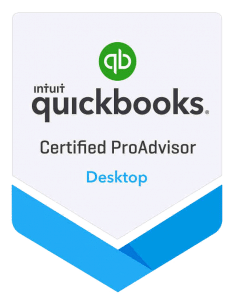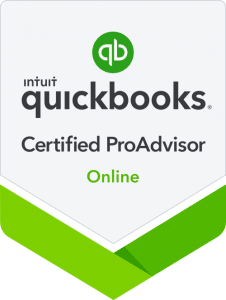Imagine stepping into a vibrant, bustling coffee shop on a crisp morning. The aroma of freshly brewed coffee fills the air, and the soft hum of conversations mingles with the clinking of cups. Amidst this lively scene, a small business owner sits at a cozy corner table, flipping through a stack of receipts and invoices.
Suddenly, a friendly figure emerges from the crowd, armed with a trusty calculator and a sharp eye for detail. It’s the bookkeeper, ready to dive into the financial adventure of the day! But what does a bookkeeper do for a small business?
Read on to find out what a bookkeeper does for a small business.
Recording Transactions
Bookkeepers document all financial activities of the business, including sales, purchases, expenses, and payments. They collect and organize financial documents. These documents may include invoices, receipts, bills, bank statements, and payroll records.
Bookkeepers categorize transactions based on their nature and purpose. For example, they classify sales revenue under specific product or service categories.
They allocate expenses to appropriate expense accounts. They also assign codes or identifiers to transactions for tracking and reporting purposes.
At the end of an accounting period, bookkeepers may make adjusting entries to correct errors. They might allocate expenses or revenues that span multiple periods. This way, they can ensure the accuracy of financial statements.
Bookkeepers focus on accuracy and completeness when recording transactions. They reconcile accounts regularly, verify data against supporting documents, and address any discrepancies or errors promptly.
Accounts Payable and Receivable
Bookkeepers receive and process invoices from suppliers and vendors. They verify the accuracy of the invoices, including checking for correct pricing, quantities, terms, and any applicable discounts.
Once invoices are verified, bookkeepers schedule payments based on due dates and payment terms. This may involve issuing checks, initiating electronic payments, or setting up recurring payments for regular expenses.
By managing accounts payable efficiently, bookkeepers contribute to optimizing cash flow within the business. They prioritize payments based on cash availability, due dates, and strategic financial planning.
Bookkeepers prepare and send invoices to customers for goods sold or services rendered. They ensure that invoices are accurate. They include relevant details such as payment terms, due dates, and follow-up on invoicing schedules.
These professionals analyze accounts receivable aging reports to identify overdue invoices and outstanding balances. They follow up with customers on overdue payments through phone calls, emails, or formal collection processes as necessary.
In cases of persistent late payments or unpaid invoices, bookkeepers coordinate with collection agencies or pursue legal actions to recover outstanding debts while maintaining positive customer relationships whenever possible.
Tax Help
If you need tax support to overcome bookkeeping obstacles, invest in bookkeeping professionals.
Bookkeepers ensure that all financial records are accurately maintained and organized. This organization is crucial for tax preparation and compliance. These records include income statements, balance sheets, expense reports, bank statements, and transaction records.
If the business is required to collect and remit sales tax, bookkeepers handle sales tax calculations, collection of sales tax from customers, and timely filing of sales tax returns with the appropriate authorities.
Bookkeepers gather all necessary financial documents and records required for tax preparation, including receipts, invoices, bank statements, payroll records, and supporting documentation for deductions and credits. They assist in preparing tax forms and ensure timely filing with the relevant authorities.
Financial Reporting
For a small business, financial reporting is vital for understanding its financial health, making informed decisions, and meeting regulatory requirements.
Bookkeepers create key financial statements. This includes the income statement, balance sheet, and cash flow statement. These statements provide a proper overview of the business’s financial performance, assets, liabilities, equity, and cash flows.
Bookkeepers may calculate and analyze financial ratios. Examples involve liquidity ratios (e.g., current ratio, quick ratio), profitability ratios (e.g., gross profit margin, net profit margin), and efficiency ratios (e.g., inventory turnover, accounts receivable turnover). These ratios help assess the business’s financial performance, efficiency, and financial stability.
Bookkeepers compare actual financial results with budgeted or projected figures. This analysis helps identify variances. They let you understand performance against targets. That way, you can adjust your financial strategies and operations accordingly.
Hiring a Bookkeeper
If these benefits sound good, it’s time to work towards hiring a Quickbooks bookkeeper. Determine the specific responsibilities and tasks you want the bookkeeper to handle. Assess the level of experience and expertise required based on the complexity of your business’s financial operations.
Develop a detailed job description outlining the role, responsibilities, qualifications, and expectations. Specify the required skills. These might include proficiency in accounting software, knowledge of tax regulations, attention to detail, and organizational abilities.
Determine your budget for hiring a bookkeeper, considering factors such as salary or hourly rate, benefits, and any additional costs associated with recruitment and onboarding.
Extend a job offer to the selected candidate, specifying details such as salary, benefits, work hours, and start date.
Choosing the Right Bookkeeper
Make sure you have the information you need to choose the right person for your business strategy. Assess the candidate’s experience in bookkeeping roles, especially in industries similar to yours. Experience with accounting software, tax preparation, payroll processing, and financial reporting is valuable.
Bookkeepers deal with large volumes of financial data. They must have strong attention to detail to ensure accuracy in recording transactions, reconciling accounts, and preparing financial reports. Look for candidates who demonstrate precision in their work and can spot errors or discrepancies in financial records.
Effective communication is essential for bookkeepers to talk with vendors, clients, employees, and others. Assess the candidate’s communication skills, both verbal and written.
Consider their ability to work collaboratively with other departments or external partners. That includes tax professionals, auditors, and regulatory agencies.
What Does a Bookkeeper Do for a Small Business? Now You Know
What does a bookkeeper do for a small business? There’s a lot that goes into it. Now that you have the basics, you should be able to decide what’s right for your needs.
Are you ready to start hiring bookkeeping professionals? CloudBookkeeping’s team of QuickBooks ProAdvisors can ensure your books are properly maintained. Contact us today.






